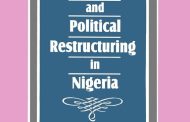COVID-19 triggers journalism warrior and university worker, Dan Okereke to put pen to paper on containing the pandemic without resorting to tactics he says reminds some Nigerians of tdusk-to-dawn curfew of the recent past!
It is paramount that Government communication strikes a distinction to explain why lockdowns are a necessary evil in enforcing social distancing against the spread of the coronavirus. Shooting innocent, unarmed civilians, molesting citizens in the name of lockdown enforcement is a shameful display of poor security operations management which has dogged our post-independence experience. It is condemnable and unacceptable. Security operatives must be restrained and those who have shot, abused, or infringed on peoples’ rights must be fished out, prosecuted, and punished according to the law.
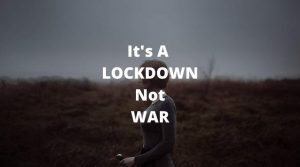
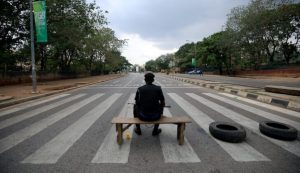
Lockdown scene from Nigeria
There will be those who equate lockdowns with the opening cast of a dictatorship, and they have a point. Our experience with the military takeover announcement in Nigeria is replete with the declaration of dusk-to-dawn curfews. This is followed by a security crackdown on violators, rounding up of opposition elements, and suppression of personal liberties and constitutional freedoms. Restrictions remain in force, in one form or the other, until the new junta settles into its pattern of repression.
It is a sequence many Nigerians can easily relate to. The scar of military rule is still fresh in our memories. People protesting and violating lockdown restrictions in Lagos, Abuja, and Ogun State may not be contesting only the abrupt squeeze on economic activities but maybe involuntarily contesting the culture of suppression most adult Nigerians associate with curfews. Are lockdown violators rights activists? Are they protecting our collective personal space currently being restricted, ostensibly for our good, to protect us from the Coronavirus?
As socially restrictive and economically sequestering the lockdown is, some positives can be attributed to it as a preemptive psychological measure for public safety against a ravaging pandemic. The COVID-19 saga is unfolding at a pace that confounds even the better-organized governments. Lockdowns instill a sense of emergency and caution, not unlike curfews after the military takeover of governments, natural disasters, terror-related violence, or external invasion. Lockdowns drills restraint and self-discipline. Forced indoors or confined to the immediate neighborhood imparts self-reflection.
Lockdown is ample time for self-reflection. People absorb information useful for staying safe and safeguarding their families and neighborhood. In the time of social media, people are absorbing an avalanche of information like never before and the attendant information overload must also be factored. Informed people take personal responsibility. A community of enlightened stakeholders is a formidable brick wall against the spread of the virus. If information is key in containing the virus, creating the right atmosphere for receiving and ingesting the information is important. Few would argue that a lockdown is the perfect setting.
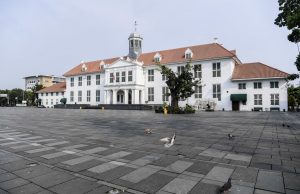
Lockdown picture from Njakarta, Indonesia
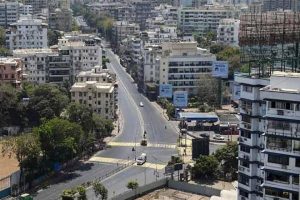
And from Mumbai in India
If lockdowns are an important first step, designing a strategic containment plan must be the next important policy measure. Lockdowns, unfortunately, can only be a tactical success if they are effective and brief. Prolonged lockdowns will reverse much of the gains and create additional economic and social upheavals, as well as devastate the national economy. Nigeria, an informal economy with poor socioeconomic infrastructures, is not designed for prolonged lockdown. The majority of Nigerians, millions of rural, semi-urban and town dwellers, rely on face-to-face contact to eke out their daily living. Lockdown is simply unsustainable in Nigeria.
A strategic plan against the coronavirus would consist of a measure to keep the population safe while opening up the economy. It would also entail sustenance of preventive measures, caregiving, and management of infected persons without prejudice to the capacity of the nation’s healthcare system to cope with malaria and other diseases. Testing is paramount for early detection and disease management and must be the basis of any successful containment strategy.
If experts agree that wearing facemasks are very effective in warding off coronavirus, then local mass production and distribution of facemasks must be prioritized by Nigerian Governments at all levels. Producing sufficient facemasks for a population of 200 million people is daunting but doable. Alongside facemasks, hand sanitizers, gloves, and other protective gadgets must be mass-produced and distributed as part of other social palliatives.
The pandemic could provide Nigeria with an excellent opportunity for a reset if local production of these basic healthcare consumables as well as foodstuff becomes the cornerstone of the Government’s strategic response. Covid-19 is a pandemic sowing death, fear and sorrow but it provides a golden opportunity to show the compassionate side of government.






